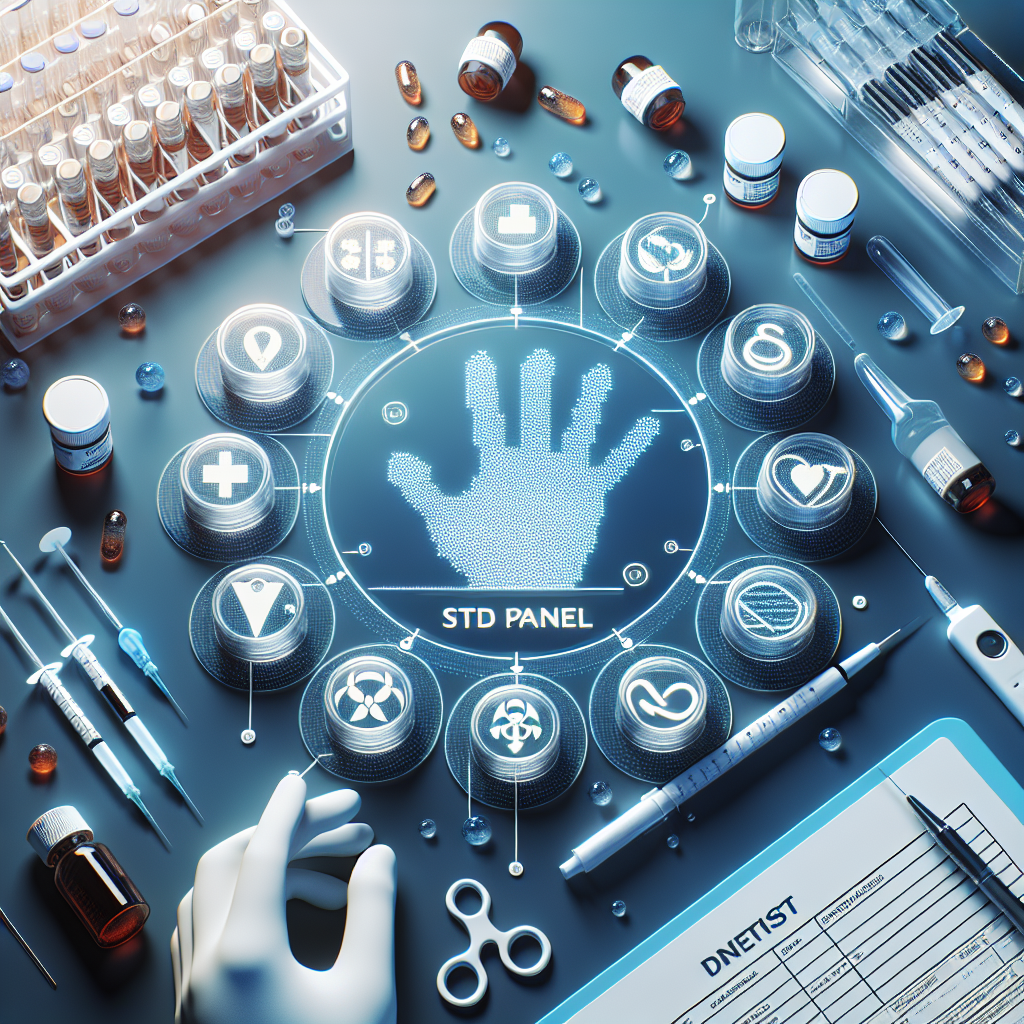Introduction
Imagine walking through a vibrant garden where some plants are known but hidden dangers loom beneath the leaves. In our journey of life, understanding sexual health can often feel like navigating this garden blindfolded. One of the most crucial steps to ensuring that we nurture our well-being is comprehending what is included in a full STD panel cost. This guide will illuminate the path, helping you make informed decisions about your health and relationships.
- Understanding the Basics of an STD Panel
- The Components of a Full STD Panel
- Factors Affecting the Cost of an STD Panel
- The Importance of Regular STD Testing
- Key Takeaways
- Frequently Asked Questions
- Conclusion
Understanding the Basics of an STD Panel
Embarking on the journey of understanding STDs can be overwhelming, like trying to decipher a complex symphony with no musical training. But fear not, as an STD panel serves as your sheet music—guiding you through the melody of sexual health. An STD panel is essentially a series of tests that screen for various sexually transmitted infections (STIs).
The Components of a Full STD Panel
A full STD panel is akin to a comprehensive safety net, designed to catch any lurking infections before they spiral out of control. Typically, it includes tests for:
- Chlamydia: A common infection that might remain silent but can wreak havoc if untreated. Learn more about its effects and symptoms here.
- Gonorrhea: Often coupled with chlamydia, this infection can lead to serious reproductive issues.
- Syphilis: Known as “the great imitator,” due to its varied symptoms, ranging from sores to rashes.
- HIV: The virus that leads to AIDS, making early detection critical.
- Herpes Simplex Virus (HSV): Responsible for cold sores and genital herpes.
- Hepatitis B and C: Viruses affecting the liver, with potential long-term health implications.
Factors Affecting the Cost of an STD Panel
The cost of a full STD panel can vary as widely as the flavors in a spice market. Several factors contribute to this variance:
- Location: Urban areas may offer more competitive pricing compared to rural settings.
- Type of Healthcare Facility: A private clinic might charge differently than a public health department.
- Insurance Coverage: Out-of-pocket expenses may differ significantly depending on whether you have insurance or opt for self-pay urgent care services.
The Importance of Regular STD Testing
Much like servicing your car regularly to ensure it’s running smoothly, periodic STD testing is vital for maintaining optimal health. It not only prevents potential complications but also safeguards your partners. By staying informed about your sexual health status, you foster trust and communication in your relationships, akin to a well-tuned orchestra playing in harmony.
Key Takeaways
- A full STD panel covers major infections like chlamydia, gonorrhea, syphilis, HIV, HSV, and Hepatitis B and C.
- The cost varies based on location, type of healthcare facility, and insurance coverage.
- Regular testing is crucial for personal health and relationship stability.
Frequently Asked Questions
Why should I get tested even if I have no symptoms?
Many STDs can be asymptomatic, silently impacting your health. Testing ensures you’re aware of your status and can seek treatment if needed.
Can I contract an STD without being sexually active?
While sexual activity is the primary transmission method, some STDs can be contracted through other means. For detailed insights, visit our article on non-sexual transmission of chlamydia.
Conclusion
Navigating the world of STDs doesn’t have to be daunting. By understanding what is included in a full STD panel cost, you empower yourself with knowledge—a light cutting through the fog of uncertainty. As you move forward on your journey, remember that regular testing is a proactive step toward maintaining not just your health but also the harmony in your relationships.
For further reading on urgent care services and lab testing, explore our comprehensive guides on urgent care services or visit our lab information page.
For more authoritative information regarding STDs, please refer to resources provided by CDC’s official page on STDs.




